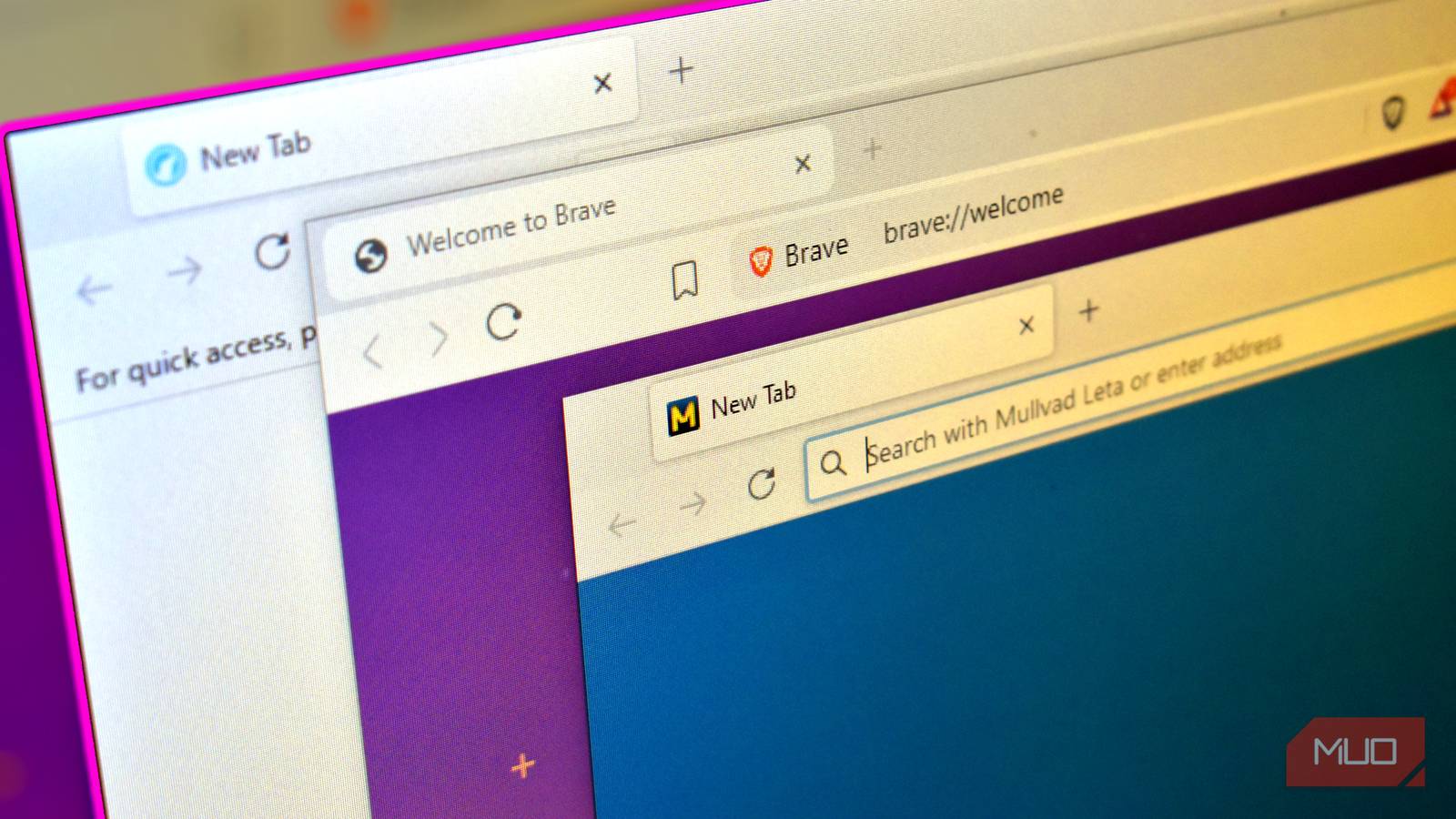Google holds a shockingly large amount of your personal data. There are ways you can delete the information that Google holds on you, but the fact that it has a vast amount of information should come as no surprise. It’s an advertising company, after all, and its Chrome browser is an important part of that.
If you care about your privacy, you should stop using Google Chrome.
The problem is not just finding a browser that respects your privacy more than Chrome. It’s finding one that’s just as functional or usable—a true daily driver that doesn’t break websites due to extra hardening. You also want a browser that is private by default and doesn’t require special settings or additional security measures to protect your privacy. This actually leaves just a handful of privacy-respecting Chrome alternatives.
Mullvad Browser
My favorite VPN also makes one of the most privacy-focused browsers
I had been using the Mullvad VPN for years before the Mullvad browser was launched. The browser has met the same privacy standards as the VPN. It offers Tor-grade anti-fingerprinting without the lag associated with Tor. Out of the box, it implements letterboxing, font standardization, and strict cookie isolation. This means everyone who uses the Mullvad browser looks identical to others, and it is nearly impossible to single anyone out or track them across websites or sessions.
It also features an identity reset button, which I feel is grossly underrated. A click of this button clears all my session cookies, cache, history, and site permissions. I find this to be the most convenient way to remove identifiable traces when I need to switch between sensitive accounts or connect to a public Wi-Fi network.
Several third-party scripts track you once you connect to the internet. Mullvad offers one of the best defenses against them with built-in HTTPS Everywhere and one of the best tracker-blocking implementations of all browsers.
Mullvad includes filter lists such as uBlock filters, EasyList, and AdGuard URL Tracking Protection. However, the biggest win is that it is designed to work seamlessly with banking, streaming, and SaaS apps, resulting in minimal breakage. It provides one of the best combinations of privacy and usability.
Download: Mullvad (Free)
Brave
Brave uses Chromium but strips out Google telemetry
Brave is the only Chromium browser I still trust, and for good reason. It provides Chromium compatibility and extension access with enhanced privacy protection. Its fingerprinting protection is also excellent out of the box. It’s one of the few browsers that shows a randomized fingerprint without any hardening on the Electronic Frontier Foundation’s Cover Your Tracks tool. This means you don’t stand out while browsing and won’t be easily tracked across websites.
Brave’s private windows with Tor integration are a subtle but effective feature I love. This hybrid approach lets you launch tabs or windows through Tor without using the Tor browser. You’re able to stay anonymous while visiting websites. But what makes it very private is that it strips out Google telemetry, including Reporting, Topics, and Network Status APIs.
You may not realize how many tracking scripts try to run on each site you visit. Brave has a Shield feature, which is an advanced tracker-blocking system. This is effective against trackers that survive typical ad blockers.
What makes Brave stand out is usability. Of all the privacy-focused browsers, it’s the easiest to adopt as a daily driver. You get a wide range of features, like Brave Talk for video conferencing and its native Brave Search, a privacy-first alternative to Google Search, and the browser’s default search engine. It also has great tab management features, making it the perfect multipurpose browser.
Download: Brave (Free)
LibreWolf
The Firefox fork with out-of-the-box privacy defaults
LibreWolf is very similar to Firefox. This isn’t surprising since it’s built on the same engine, Gecko. It’s a more hardened browser by default compared to Firefox, and a good Chrome privacy browser option. Unlike corporate Firefox forks, LibreWolf is fully auditable. Its community prioritizes privacy over any performance optimization that may compromise user privacy.
It completely removes Pocket integration, telemetry, and data collection services from Firefox. Even though it’s hardened, you get very good compatibility on mainstream websites with minimal breakage. It has seamless integration with Firefox extensions, and streaming platforms work quite well.
Also, like Mullvad and Brave, LibreWolf offers robust fingerprinting and anti-tracking protection, featuring subscriptions to EasyList, uBlock filters, AdGuard URL Tracking Protection, and more. I love the cross-site cookie isolation that ensures websites can’t track you across the internet.
Beyond core privacy features, it offers a few conveniences that make it ideal for daily browsing. Session Restore is a convenient feature that remembers where you left off, and you can easily customize the browser’s layout, theme, and toolbar.
There is really a short list of options
As you can see, truly usable, privacy-respecting browsers are few—many either break sites, lack features, or require extra hardening. Additionally, there are numerous privacy browsers that require extra security measures before they can effectively protect your privacy. Most people don’t make the effort or lack the technical ability, making such browsers the wrong choice. Also, I have completely lost trust in Firefox, so it is conspicuously missing.
Ultimately, if the goal is to achieve great functionality while maintaining true privacy, you may not be able to exceed these options.











